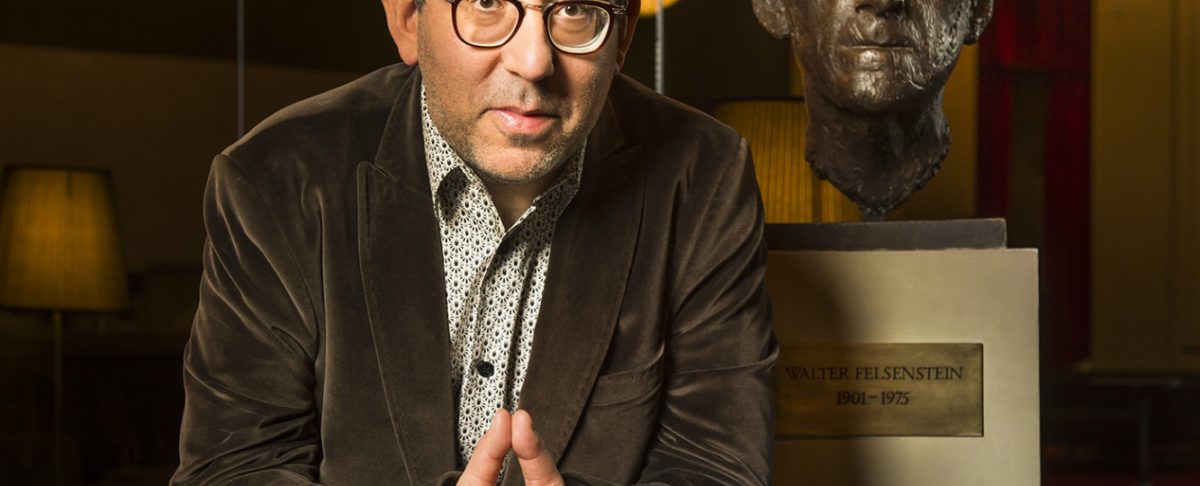When it comes to Yiddish culture, it’s true what they say – they made Hollywood. They built Broadway. There is not a composer or lyricist creating today in Western culture who was not, indirectly or otherwise, influenced in some way by Yiddish musicians, singers and composers. A team of three from the Komische Oper Berlin bring the reverence of their entire orchestra to Scotland to pay tribute to Yiddish language and the creators before them.
For a mere 4,000 years, Jewish culture has stood as the oldest monotheistic religion. With this, the Yiddish language is around 1000 years old, though speakers are now significantly lower due to the events of the Second World War. But Forget Me Not – sung in Yiddish with English subtitles – is not about sympathy, nor tear-shedding. Featuring the works of genre-defining composers Abraham Ellstein, Joseph Rumshinsky and the lyricist Molly Picon, it is a celebration of the language from Warsaw, to Broadway, and then back again.
Pianist Barrie Kosky kicks off the show with a tone which pervades the evening. His approach generates a familial atmosphere; this is just one extensive gathering of your relatives, friends, and those uncles you never liked. It’s warming, his humour effortless, and the decision to avoid scripted junctions between songs brings a natural rapport with the audience.
Performing arias and occasionally sharing the stage are Alma Sadé and Komische legend Helene Schneiderman. Though both primarily sopranos, Schneiderman teeters into the edges of mezzo-soprano when the occasion calls. Vocally exceptional, the way they perform stands them apart from their peers. Together they take us back to the misery and sarcasm of Yiddish Operetta, spanning film and stage productions from the 1880s to the 1930s.
Scriptures, poems and songs bare the scars of history. Imploring us to keep our mindsets away from 1933, encouragement is still needed to liberate the forgotten music of the Holocaust. Abraham Goldfaden’s Rozhinkes mit mandl’n, or Raisins & Almonds, is a lullaby mothers, sisters and friends would sing to the children in the concentration camps. To describe the beauty this number summons, primarily through the soprano tones of Sadé and Schneiderman, feels inherently wrong, yet this haunting, instilling performance is breathtaking in its gravitas.
It isn’t all tears, however, as a goal of changing the mindset over Jewish history is up for discussion. The Holocaust, always to hold as an example of how far from the path humanity can stray, does not define a people. With this, an appropriate amount of melodramatic comedy is thrust into the audience, swaying the emotional pendulum in the opposite direction. It’s all or nothing this evening. Schneiderman lifts any doldrum slithering into the mindset of the audience from the poignant pieces mentioned. Her louder than life attitude, unequivocally controlling her vocals, reminds us of the celebration aspect in the evening, bringing Yiddish culture to life on stage.
Opera has a grand image of bold, belting numbers. Forget Me Not is of a different calibre, balancing prestige and a sense of humour. Sadé and Schneiderman’s ability to carry the vocals without resulting in bombastic shrieks is testament to their marvellous skill.
